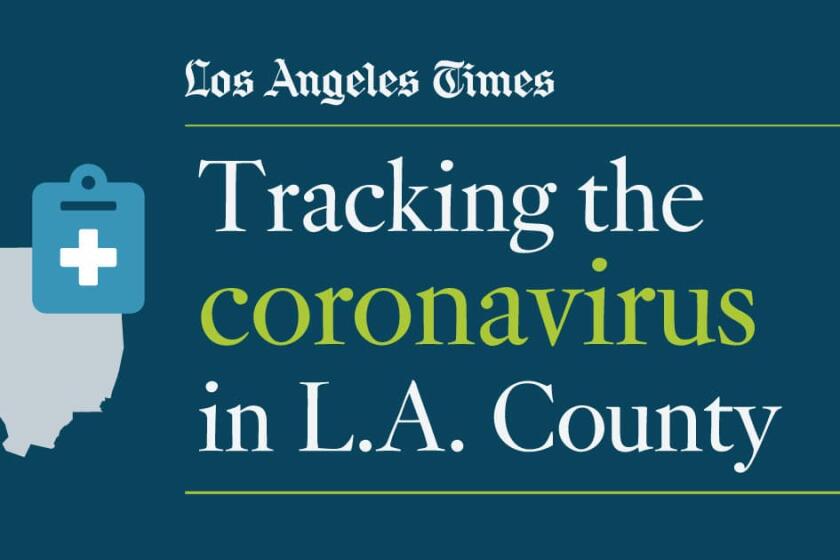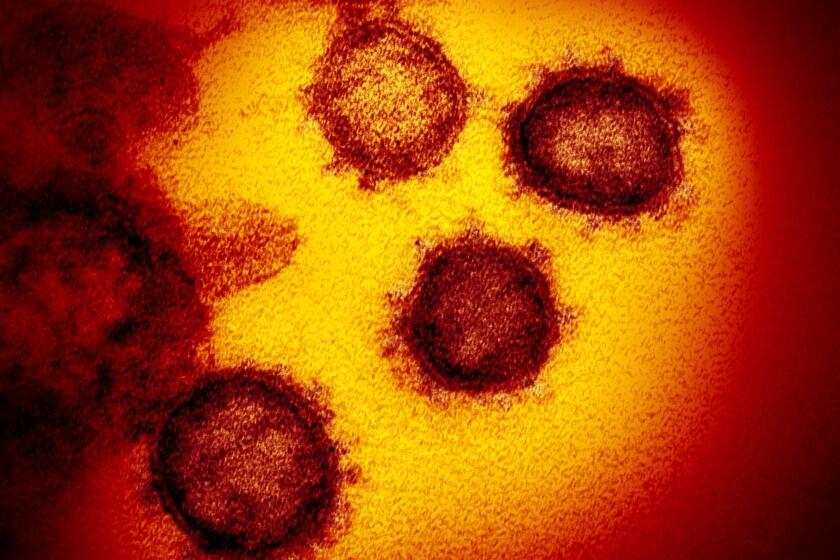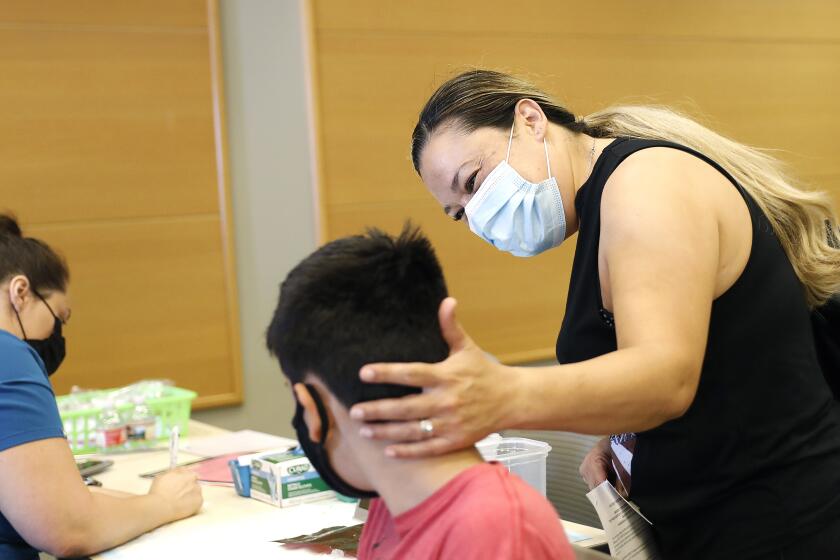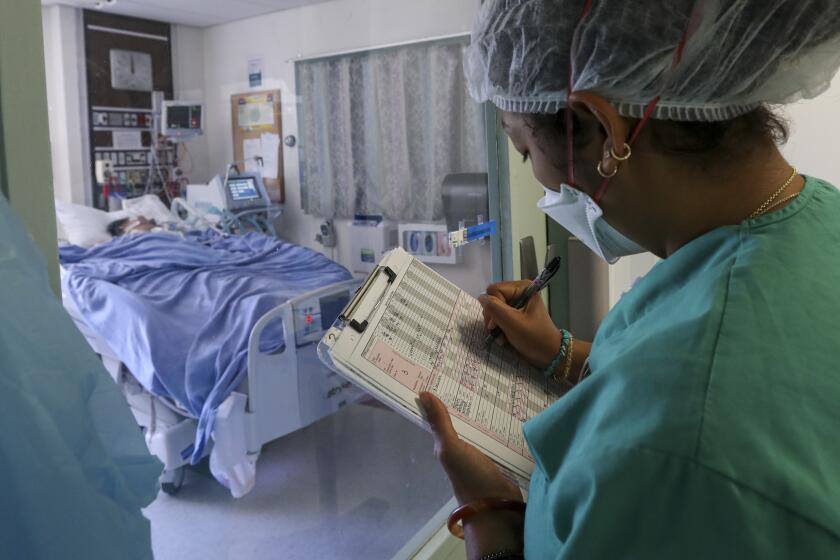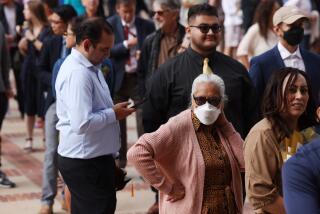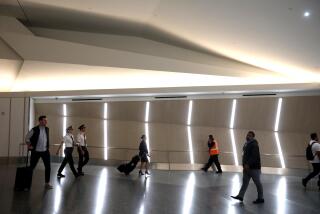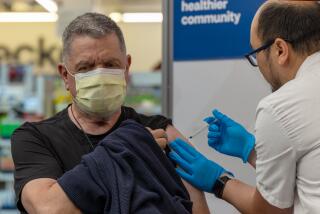L.A. County sees new significant rise in COVID-19 cases, 99% involved the unvaccinated
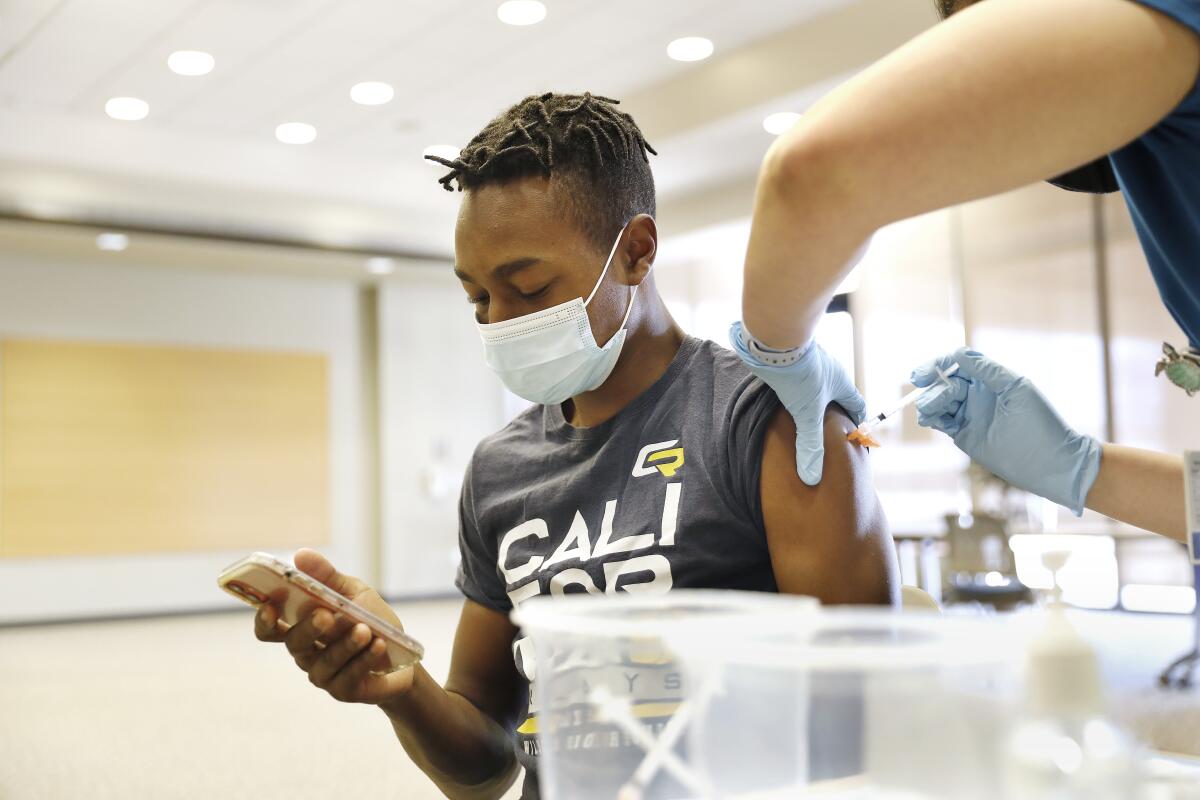
Los Angeles County officials reported the fourth straight day of more than 1,000 new COVID-19 cases on Monday, more troubling evidence that the disease is increasing its spread among the unvaccinated.
The county Department of Public Health reported 1,059 new cases Monday. On Friday, 1,044 coronavirus cases were reported countywide, followed by 1,069 more on Saturday and an additional 1,113 Sunday, according to data compiled by The Times.
“Over 99% of the COVID-19 cases, hospitalizations and deaths we are seeing are among unvaccinated individuals,” county Public Health Director Barbara Ferrer said in a statement Monday.
The latest maps and charts on the spread of COVID-19 in Los Angeles County, including cases, deaths, closures and restrictions.
Sunday’s figure was particularly eye-popping because initial weekend case counts are typically artificially low because of reporting delays.
The stream of new infections, though still small compared with the state’s fall-and-winter surge, has surrendered some of the county’s hard-won ground in the battle against COVID-19.
Over the seven-day period that ended June 26, the county reported an average of just under 250 new coronavirus cases a day. The number has more than tripled in just two weeks.
The number of people falling seriously ill with COVID-19 is also on the rise. State data show that 376 coronavirus-positive patients were hospitalized countywide on Sunday — the highest number since early May and up about 77% from the record low of 212 set one month ago.
Reported deaths remain low, at an average of about six a day. However, health officials have noted that it can take weeks for increases in transmission to trigger a corresponding rise in fatalities.
It’s also possible that a corresponding rise in fatalities may not be as severe as in previous surges, when the vaccines were not widely available, because more seniors and those who are otherwise vulnerable are now mostly vaccinated.
Settings where the percentage of fully vaccinated people are high continue to have low rates of coronavirus cases. L.A. County officials say healthcare workers at nursing homes and other healthcare facilities continue to have low rates of coronavirus infections.
L.A. County has recorded more than 3,000 new coronavirus cases in three days, as viral transmission increases among unvaccinated people.
Home to roughly one-quarter of Californians, L.A. County both reflects and shapes the wider statewide pandemic landscape.
Over the past seven days, the state has reported an average of 2,173 new cases a day — a 124% rise from two weeks ago, Times’ data show.
Over roughly that same time period, statewide COVID-19 hospitalizations have soared by 51%, reaching 1,484 on Sunday. Deaths have remained essentially flat, at about 26 a day.
Unlike earlier waves of the pandemic, this latest uptick does not carry the same risk for everyone. Those who have been inoculated for COVID-19, officials say, remain very well-protected against infection, and even more so against serious health repercussions.
Unvaccinated people, perhaps hoping they might outlast the pandemic without getting a shot or getting sick, may be playing an increasingly risky game of chance.
Though California has one of the more robust levels of vaccine coverage in the nation — with more than 59% of residents having already gotten at least one dose — millions of people have yet to roll up their sleeves, either because they’re too young to be eligible or have chosen not to.
Given the recent rise in cases, as well as continued circulation of the hypercontagious Delta variant of the coronavirus, officials and experts alike characterize COVID-19 as a tale of two pandemics: one in which vaccinated people enjoy a high degree of protection while the uninoculated remain exposed.
Despite that, the number of vaccine doses being doled out statewide continues to fall. During the height of the rollout, roughly 400,000 shots were going into Californians’ arms each day. Now, the average is well below 100,000.
At that rate, it would take months to vaccinate enough Californians to reach the coverage believed necessary to achieve herd immunity — the level at which enough people are protected that the coronavirus is essentially starved of new hosts to infect.
Estimates for that threshold vary, but generally range from 70% to 85%.
“Although California’s vaccination rates are among the highest in the country, we must stay vigilant against COVID-19 and its variants,” Dr. Tomás Aragón, state public health officer and director of the California Department of Public Health, said in a recent statement. “That means motivating the remaining Californians to get vaccinated, and encouraging our friends and families too.”
If the Delta variant catches you, will your COVID-19 symptoms be different than for people infected with earlier strains of the coronavirus?
During a briefing last week, Ferrer said that “the work in front of us is to improve confidence in these vaccines among people who are not yet vaccinated, and we will try lots and lots of different strategies with all of our partners.”
“The most successful strategy to date is making sure that people are getting their information from other people that they trust, and working to build out those teams of folks that are in the neighborhoods that can be trusted and have good information remains one of the most important strategies,” she said. “So we’ll continue to do that while we make sure that access remains as easy as possible.”
More to Read
Sign up for Essential California
The most important California stories and recommendations in your inbox every morning.
You may occasionally receive promotional content from the Los Angeles Times.
